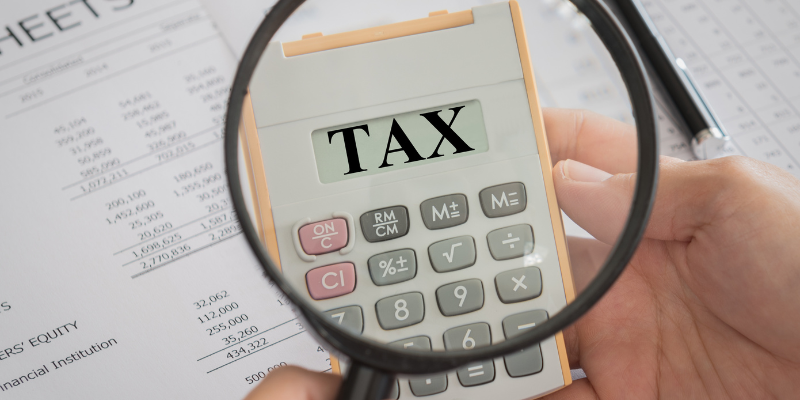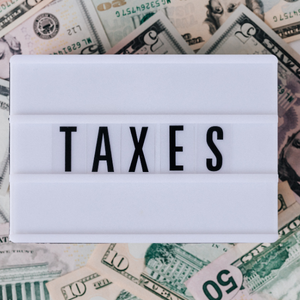
When you sell your Irving home with Southern Hills Home Buyers, it’s important to understand the tax implications—don’t worry, it’s not as painful as it sounds. While taxes might not be your favorite topic, knowing the basics can help you save real money. Most sellers in Irving are relieved to find they owe far less than expected, thanks to Texas’s no state income tax and favorable federal rules that benefit homeowners. With the right guidance, you can keep more of your profits and avoid surprises at tax time.
What Taxes Apply When Selling a Home in Irving, TX
When selling your Irving home, you’re gonna deal with three main tax areas. Federal capital gains tax is your biggest concern, but Texas makes everything else simple.
Federal Capital Gains Taxes: The Main Tax You’ll Pay
Capital gains taxes will hit the profit from your home sale and have a massive impact on your final payout. If you buy for $200,000 and sell for $300,000, that $100,000 difference is what the Internal Revenue Service (IRS) cares about.
The rate will depend on how long you have owned your home and how much money you make each year.
Long-term ownership will get you much better rates, specifically 0%, 15%, or 20% instead of your regular income tax rate. Single people earning under $48,350 pay zero percent on long-term gains, and married couples get that nice rate up to $96,700.
No Texas State Income Tax or Transfer Tax

Texas doesn’t want your capital gains money. Yes, you read that right. While other states will pile on extra taxes that can cost thousands, Texas will help you keep your.
You will also dodge transfer taxes that other states love charging when property changes hands. Some places will hit you with $3,000 just for signing papers, but Texas says nope.
Irving Property Tax Responsibilities at Closing
Property taxes get sorted out at closing through proration and this impacts all TX home sales. You will pay for the months you owned the home and the buyer will cover the rest.
Irving’s rate is $0.5891 per $100 of value, but when you add school district and county taxes, you’re looking at about $2.14 per $100 total. Your title company will handle all the math, so don’t sweat the calculations.
Capital Gains Tax on Your Irving Home Sale
As we’ve said, capital gains tax is probably the biggest tax you’re going to pay, but it’s also where you can save the most. You must learn about the rules and exemptions because they can put thousands back in your bank account.
How to Calculate Your Gains and Tax Liability
First off, identify your home’s basis. This is what you paid, plus major improvements you’ve made. For example, if you added a new deck, remodeled your kitchen, or upgraded your flooring, these all count toward your basis and reduce your taxable gain.
Say you bought it for $250,000 and put $40,000 into improvements. Your basis is now $290,000. Sell for $400,000, and your taxable gain is $110,000.
Keep every receipt for improvements because the IRS loves documentation, and you’ll love the tax savings related to proper asset management.
Short-Term vs. Long-Term Capital Gains Tax Rate
If you own your home longer than a year, you’ll get the VIP treatment with long-term capital gains rates. These top out at 20% even for high earners. Sell within a year and you’re stuck paying your regular income tax rate, which can hit 37%.
Most Irving sellers have owned their homes for years, so this rarely matters. However, timing can save you big money if you’re cutting it close.
The $250,000/$500,000 Federal Exemption and Requirements
We find this exemption super cool! Basically, single homeowners can completely dodge taxes on $250,000 in gains, and married couples get a ridiculous $500,000. However, you need to live in your Irving home as your main residence for two of the last five years, and own it for two years.
Lots of homeowners pay zero capital gains tax because of this rule, and these tax guides don’t always emphasize how massive this benefit really is.
You can use it every two years, so it keeps coming back to save your wallet again and again.
Partial Exemptions for Special Circumstances
You can score partial exemptions even without hitting the full two-year requirement if a job transfer is dragging you more than 50 miles away, health issues force you to move, you’re dealing with a messy divorce, or you have military orders.
The exemption gets sliced based on how long you actually lived there. One year will get you half the exemption, which is still better than having to pay full taxes on your entire gain.
Irving Property Tax Implications When Selling Your House
Property taxes in Irving are different from capital gains, but they’re so much more predictable. Let us break down exactly what you need to know so you won’t be surprised during closing.
How Prorated Property Taxes Work at Closing
Property tax proration is quite a genius once you wrap your head around it. You literally only pay for the exact days you owned the house during the tax year, not a single penny more.
Sell on June 15th? You will cover January 1st through June 15th, and the buyer will take care of June 16th through December 31st.
Your closing agent will calculate all these numbers automatically and show the adjustments right on your settlement statement.
Note, though, that since most sellers already have property taxes covered through their mortgage escrow account, this usually means you’re actually getting money back instead of shelling out more cash.
That refund check from your mortgage company shows up within 30 days of closing. It’s like your reward for being such a responsible homeowner all these years.
Irving’s Current Property Tax Rate Structure
Irving’s property tax setup seems easy to understand until you start adding up all the pieces. Then it can smack you in the face a little.
The City of Irving will hit you with $0.5891 per $100 of assessed value, which honestly isn’t terrible. But then Irving ISD will pile on $1.0159, Dallas County will add $0.2155, throw in a few smaller districts, and suddenly you’re staring at about $2.14 per $100 total.
So for a $350,000 home, you’re looking at roughly $7,490 per year, which probably made you wince when you first saw that number.
The good news is Irving actually offers some solid exemptions that can knock your bill down if you qualify. Trust us, you want to check if you do.
Losing Your Homestead Exemption After the Sale
We’re sharing this now so it won’t blindside you: you’re going to lose your homestead exemption once you sell and that affects your property taxes for the current year.
Irving will give you a 20% homestead exemption when you live in your home as your main place, which has probably been saving you hundreds of dollars every year without you really thinking about it.
When you sell, that exemption gets chopped up proportionally, too, so you keep it for the months you actually lived there. The buyer won’t get your homestead exemption for their chunk unless they’re moving in as their primary home and actually file the paperwork. If you’re looking to simplify the process and avoid the red tape, you can sell your home for cash in Irving or nearby cities and close without the usual delays.
Your closing team will handle all this automatically, but we’re telling you this so you understand why the numbers shake out the way they do on your settlement statement.
Tax Responsibilities and Reporting Requirements
Of course, the IRS has some specific rules about when and how you need to report your Irving home sale. We know nobody loves dealing with the IRS, but most of this stuff is way simpler than you think.
When You Must Report Your Home Sale to the IRS
You might not have to report your home sale to the IRS at all, which feels like winning a game show. If you nail the full capital gains exemption and your gain stays under those $250,000/$500,000 limits, you can often skip this whole reporting headache completely.
However, if your closing company sends you Form 1099-S, you have to report the sale on your tax return, even if you don’t owe a single penny in taxes.
The IRS will get their own copy of that 1099-S, so they’ll definitely be looking for it on your return. It’s like they’re keeping tabs on you, which is slightly creepy but totally expected.
Form 1099-S Documentation and What It Means

Form 1099-S is your closing company tattling on you to the IRS about your home sale. But don’t panic, it’s totally normal. They have to send you this form if your home sold for more than a certain dollar amount or if they’re not completely sure you qualify for the full exemption.
In other words, if you get a 1099-S in your mailbox, that doesn’t mean you’re in trouble or that you owe taxes. It just means you need to fill out the right forms to prove to the IRS that you’re playing by its rules.
Most of you Irving sellers who’ve been living in your home for years and qualify for that exemption will end up owing nothing, but you still have to deal with paperwork. It’s annoying, but at least you won’t be writing a big check to Uncle Sam. And if you want to skip the hassle altogether, you can sell your home for cash in Euless or nearby cities and enjoy a quicker, smoother closing process.
Record-Keeping for Home Improvements and Tax Basis
Yep, your organizational skills can literally make you money. Every single receipt for major home improvements needs to be saved like it’s made of gold because each one directly slashes your taxable gain.
We’re talking about the big stuff like roof replacement, HVAC systems, kitchen renovations, bathroom remodels, new flooring, windows, additions, all that expensive stuff you’ve been putting into your home.
Regular maintenance like painting or fixing a leaky faucet doesn’t count, but those substantial improvements that cost you real money do.
Do yourself a huge favor and create a dedicated file where you toss every improvement receipt. Your future self will literally want to hug you when it’s time to calculate your basis.
Even if you’re pretty sure you’ll qualify for the full exemption, these receipts are like your insurance policy in case your numbers end up being higher than you expected.
Additional Selling Costs and Tax Implications
Taxes aren’t the only thing that will hit your bank account when you sell. There are other costs lurking around, but some of them actually help you come tax time.
Real Estate Commission and Closing Cost Deductions
Want to hear something that’ll make you feel better about those big commission checks? Well, real estate commissions and most closing costs actually reduce your taxable gain.
When you pay your listing agent 3% and the buyer’s agent gets their cut, every penny will get subtracted from your gain before the IRS even looks at it. The same goes for title insurance, attorney fees, and other closing expenses.
If you made $100,000 profit but paid $18,000 in commissions and $3,000 in closing costs, your taxable gain just dropped to $79,000.
We know paying commissions stings, but at least the IRS isn’t taxing you on money you never got to keep.
Title Insurance and Settlement Fees
Title insurance feels like one of those “what the heck am I paying for” expenses, but it’s protecting you from seriously scary scenarios. Someone is crawling out claiming they own part of your house, or some weird lien you never knew about.
In Texas, you’re looking at 0.5% to 1% of your sale price for title insurance. Settlement fees run about 1% and involve all the paperwork to transfer everything legally. The good thing is that these costs slash your capital gains just like commissions do.
Strategies to Minimize Your Tax Liability on Your Irving Property
Yes, there are legal ways to keep more of your money instead of handing it to the government. Every dollar you save on taxes is a dollar you get to spend on something way more enjoyable.
Time Your Sale for Maximum Tax Benefits
Timing your sale can really save you a lot of money, and we’re not talking about market conditions. Getting close to that two-year residency mark? Wait it out. Selling just months early could cost you the entire $250,000 or $500,000 exemption, which is like setting cash on fire.
Approaching the one-year ownership mark? Waiting to reach long-term rates can cut your tax from 37% down to 0%, 15%, or 20%.
We’ve seen people save $15,000 just by waiting a few weeks. Don’t let anyone pressure you into a sale that’ll impact you tax-wise.
Home Improvement Deductions
Every major improvement reduces your taxable gain dollar for dollar. Those $25,000 kitchen reno, $12,000 flooring, $8,000 HVAC replacement all count. You can go back years and add everything to your basis. New roof five years ago? Counts. Pool three years back? Counts, too.
Don’t be lazy and start looking through your files and create a master list. You’ll be amazed at how much you’ve invested in your home.
Primary Residence Requirements
The two-out-of-five-years rule has sneaky benefits most people miss. Those two years don’t have to be consecutive or recent. If you lived in your Irving home for three years, then rented it out as a tenant-occupied property for two, you still qualify when you sell.
Military people get even better treatment with deployment suspensions. Even temporary absences count. Six months caring for a sick relative while keeping your Irving address still qualifies.
Don’t assume you’re disqualified just because your situation isn’t perfectly simple.
Common Tax Mistakes Irving Sellers Should Avoid
Too many Irving homeowners make costly mistakes just because they weren’t aware of them. Here’s a detailed list so we can save you from some serious financial pain.
Not Filing for Homestead Exemption While Living in Your House
This is hands down the biggest mistake we see, and it makes us want to shake people sometimes.
Irving will give you a 20% homestead exemption just for living in your home as your primary residence, which can save you hundreds or even thousands every year on property taxes. Yet many homeowners never file for it and just throw money away year after year on this investment property asset.
You literally fill out one form with the Dallas Central Appraisal District and get instant savings. Even if you’re selling soon, you should still file for it because you get the exemption prorated for the time you actually lived there.
It’s free money, and you’re just walking away from it.
Missing Important Ownership and Residence Requirements
You need to own your home for two years and live in it as your main place for two years out of the last five before selling to get that massive $250,000/$500,000 exemption.
Sounds simple, but we’ve seen people sell just one month shy of hitting those requirements and lose the entire exemption. Yep, that’s potentially paying tens of thousands in taxes that could’ve been completely avoided by waiting a few more weeks.
Track your dates religiously. Write them down, put them in your phone, tattoo them on your forehead if you have to. Don’t guess on this stuff.
Poor Record-Keeping for Home Improvements

This one drives us crazy because it’s so preventable. Every dollar you spend on legitimate home improvements reduces your taxable gain dollar for dollar, but only if you can prove it to the IRS. We’ve watched homeowners lose out on thousands in deductions because they couldn’t find receipts for that kitchen remodel or new roof.
The best action is to start a dedicated file right now and throw every improvement receipt in there: contractors, materials, permits, everything.
Don’t waste your iPhone’s expensive camera. Take pictures of receipts, too, in case the originals fade. This isn’t just about being organized. This is about keeping your hard-earned money instead of handing it to the IRS for no good reason.
Work with Cash Buyers For a Simplified Tax Process
Cash buyers are like the cheat code for making your taxes super simple. Most people don’t realize how much cleaner everything gets when you ditch all the traditional selling nonsense:
- No mortgage drama or appraisal headaches messing up your timeline.
- Close in 2 to 3 weeks instead of dragging it out for months.
- Skip all those repair costs that may or may not help your tax situation.
- Way fewer closing costs = more cash in your pocket.
- Perfect timing control for hitting those crucial tax deadlines.
- Zero financing fallthrough stress that can wreck your tax planning.
Your tax guy will surely high-five you for keeping everything this simple and organized.
Key Takeaways: Tax Implications of Selling Home in Irving, TX
The bottom line is you can actually come out ahead tax-wise when selling your Irving home if you’re not lazy about it. Most people panic about taxes and end up overpaying because they didn’t bother learning the rules (or they rushed into sales at the worst possible time). The implications of poor planning can seriously hurt your wallet, so don’t be that person.
Do you need to sell your home in Irving? Beyond speed and convenience, it’s crucial to understand the tax implications of selling your property. At Southern Hills Home Buyers, we not only offer fair cash deals and a hassle-free process, but we also help you navigate what selling means for your wallet come tax time. The good news? Most Irving sellers owe little to no taxes due to Texas’s lack of state income tax and generous federal capital gains exclusions—especially if the home was your primary residence. Want to sell fast and keep more of your money? Contact us at (214) 225-3042 for a no-obligation offer and guidance tailored to your unique situation. Get started today!
Helpful Irving Blog Articles
- Selling Your Duplex Quickly In Irving, TX
- Selling Your Fixer Upper House Quickly In Irving, TX
- Tax Implications of Selling Home in Irving, TX
- Do You Need a Deed to Sell a House in Irving, TX?
- Expert Guide To Downsizing Your Home In Irving, TX
- Does A Seller Pay Closing Costs in Irving, TX
- Can I Switch Real Estate Agents in Irving, TX
- Condemned House Requirements In Irving, TX
- Best Time To Sell A House In Irving, Texas
- Irving, Texas Property Tax Rate
- Irving, Texas Property Managers
- Irving, TX Neighborhood Map
- How To Sell Your Investment Property In Irving, TX
- Cost to Rewire a House in Irving TX
- Remove a Name From a Deed in Irving TX
- Cost to Repair Water Damaged Ceiling in Irving TX

| TAXPAYERS | TAXED | INVESTMENT CAPITAL | LAWYER | TEXAN | TAXABLE PROPERTIES |
| ASSET | EFFECTIVE TAX RATE | TAX RATE | DALLAS COUNTY, TX | DALLAS COUNTY, TEXAS | DALLAS COUNTY |
| TAX-FREE | MARKET VALUE | INTEREST | DEBT | TAXPAYER | PRICES |
| PAYMENT | INTERNAL REVENUE CODE SECTION 1031 | INVESTOR | INDIVIDUAL RETIREMENT ACCOUNTS | TRADITIONAL IRAS | |
| IRAS | INDIVIDUAL RETIREMENT ACCOUNTS (IRAS) | PERSONAL INCOME TAX | REAL ESTATE INVESTORS | HEIRSHIP | INHERITANCE |
| HSAS | HEALTH SAVINGS ACCOUNTS | EXPENDITURES | CASH | TAX-DEDUCTIBLE | SAVINGS ACCOUNTS |
| MONIES | INCOME TAX RATES | CALCULATION | BUDGETS |
